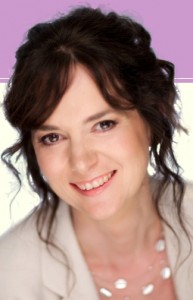Podcast: Download (Duration: 41:23 ? 27.4MB)
Forbes recently released this years list of wealthiest authors with James Patterson again topping the list at $94 million. Janet Evanovich was the top earning female author with $33 million. I?m not aiming that high just yet but I certainly don?t subscribe to the ?poor author in a garret? myth.
 Writing is a joy but it is also a living. I gave up my full-time income as an IT contractor to become an author-entrepreneur so it has to pay the bills.
Writing is a joy but it is also a living. I gave up my full-time income as an IT contractor to become an author-entrepreneur so it has to pay the bills.
On a related note, China Mieville (amazing author!) closed the Edinburgh Literary Festival by raising the idea of a salary for authors, amongst other things. In the intro, I talk about why I think this is a crazy idea and why I favor a more entrepreneurial model. I also mention a new opportunity for marketing your book by sponsoring the podcast, as well as an update on my own writing progress.
 Stephanie J Hale is an author, speaker and entrepreneur. She is the founder and CEO of the Oxford Literary Consultancy where she helps authors to write, sell and promote their books. She also runs the Millionaire Author Bootcamp.
Stephanie J Hale is an author, speaker and entrepreneur. She is the founder and CEO of the Oxford Literary Consultancy where she helps authors to write, sell and promote their books. She also runs the Millionaire Author Bootcamp.
- How Stephanie got started with writing and publishing. Stephanie was originally a journalist and later did a Masters degree in Creative Writing with Malcolm Bradbury and Rose Tremain. The emphasis was on writing award winning novels, so Stephanie did just that, winning some awards but not earning much money. Later she worked with the Arts Council of England as a Literature Advisor and then worked at the University of Oxford as Assistant Director of Creative Writing. In 2003, she set up the Oxford Literary Consultancy and more recently has held the Millionaire Bootcamp for Authors. So she has progressed from a very academic background to a more entrepreneurial focus.
- Along her journey, Stephanie noticed that many talented authors fell by the wayside because although they wrote fantastic books, they couldn?t sustain the lifestyle because they earned no money. So often the trappings of literary success didn?t come with the income for a full-time living. Authors could write, but not market themselves or their books. Her aim is to bridge the gap between academic writing ability and the entrepreneurial world.
- How do authors escape the poverty mindset? You have to want to change your attitude. Art for art?s sake is fine, but if you want to earn money, or if you have to earn money, you have to change your mindset. People want different things ? a literary agent, or a film deal, or a 6 figure income. You have to step outside your comfort zone, break it down into chunks but there is also a big leap of faith at some point. You have to be prepared to push yourself and get used to being uncomfortable. When Stephanie?s marriage broke down, she had to make the money so she was forced to change her mindset and through her actions, she transformed her own life. She does have mentors who keep her on track.
- The ebook revolution is the most exciting time for authors. On Kindle there are around 600,000 books (in UK store) with 12 million Kindles sold. Supply and demand shows there is means authors can have a viable living. Stephanie has clients earning 6 figures from Kindle income.
- Is successful sales about volume of books or marketing what you have? There are different strategies for different situations. Volume is just one tactic and writing that fast may not be applicable for everyone. Non-fiction authors can use keyword search tool for specific niches. If you take the more entrepreneurial approach, you can use a book as the front end of your marketing funnel and then customers will be drawn into higher priced products, e.g. multimedia products, speaking or consulting. [This is my model on The Creative Penn as well.] To make $1 million, you can get 1 million people to pay $1 or 1000 people to pay $1000, or combinations of this maths. You have to decide on what you what to achieve and then find the strategy for achieving that goal.
- On self-publishing and the traditional route. It depends on the personality of the author. Stephanie is hugely excited about self-publishing and she loves having control over the process. But some people don?t want all the hassle of self-publishing so in that case, traditional publishing may be the best route. There are a lot of frustrations with both models, and even if you get the top agent and top publisher, you may not see the money anyway. If you are excited about being an entrepreneur and you?re willing to learn PR and marketing, then go for self-publishing. You definitely need time or money. You can do it yourself or outsource to other people.
- On the snobbery of literary fiction vs commercial, specifically in the UK where there is still an attitude that genre fiction is somehow less important. Stephanie was very keen to break this academic snootiness that she saw in her previous work. She saw the tragedy of authors falling by the wayside because of lack of money, so this snobbery doesn?t help anyone.
- It?s important not to be precious about your book. Think of your book as a commodity, like a tin of coffee. It?s about packaging and branding. Upmarket with gold edging vs economical vs couples branding. The packaging appeals to people?s emotions. It has to catch people?s attention immediately. 74% of the buying decision is made on the cover and associated material so you need to spend time focusing on the marketing.
- There are cycles in the writer?s life. During the creative process, your focus will be on writing and creation, but then later, your focus will be on marketing. Stephanie advises you to write a marketing plan BEFORE you write the book. If you?re going to spend all that effort and energy in writing, you?re going to want to make sure it sells.
- To make $1 million on Kindles, we?d have to sell 500,000 at $2.99 a book (at the 70% royalty rate). As well as a mailing list, Stephanie also mentions YouTube videos even for fiction. She uses an example of an author who identified her target audience as women in their 40s, so the author is blogging and doing videos about things professional women are concerned about. Speak the language of the target market. YouTube videos are quick because you can do a 3 minute video and put it up there quickly. Blogging that is keyword rich is also recommended. I mention YA author John Green who has done amazing things with his channel. Video can help people get to know you and that can be the trigger for them to buy your book.
You can find Stephanie at OxfordWriters.com.
Please do let us know about your thoughts on money in the comments. This is an important topic for people writing for a living.
No related posts.
Related posts brought to you by Yet Another Related Posts Plugin.
Source: http://www.thecreativepenn.com/2012/08/26/millionaire-author-stephanie-hale/
celebrity wife swap gla republican candidates mike martz hokies quadrantid norv turner
No comments:
Post a Comment
Note: Only a member of this blog may post a comment.